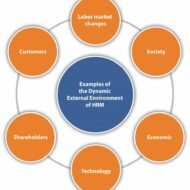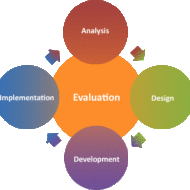Posted by Managementguru in Business Management, Human Resource, Organisational behaviour, Principles of Management
on Mar 20th, 2014 | 0 comments

Changing Trends and Challenges in HRM The very conception of Human resource management has changed tremendously in the recent past as it has taken a new form and shape that embraces each and every activity of the organization, as every action requires human intervention. Human resource has become the most important of all the resources from the point, where it was merely one of the many resources. What has caused this great transformation? What has made firms recognise that manpower is the most important of all resources to the extent of including human resource in their accounting as assets! Evolution of HRM: A thorough analysis of the evolution of human resource management clearly indicates the exceptional quality of manpower, especially managers to tackle the very many challenges that come on their way. A manager who was merely a reporter to the top level management has now become indispensable. The laborers whether skilled or unskilled cannot be treated the way they were treated earlier, as the introduction of many labor laws support their cause. The legal framework guides the organization in terms of pay scale, bonus and increments and supports the workers in their welfare, security and safety. Globalization, Privatization and Liberalization: With the initiation of globalization, privatization and liberalization the firms are exposed to more competition and the managers have to put their think tanks to the best use in order to sustain and succeed in the market. People from various background work together in a multinational firm; their language, dress code, food habits, style of working and adaptability are quite different from one another. A human resource manager must go for a “culture” that is unique to the organization. He has to be proactive in order to safeguard the employees from a “culture shock”, by training them sufficiently before induction. Human behavior: Management of human resources by itself is complex and it needs people with special skills. The unpredictable nature of human behavior makes the job more difficult. In the task of managing the emotions and behavior of his employees, a manager must not lose his composure at any point of time for which he has to be a balanced personality. How many of us are gifted with a balanced state of mind and especially in a crisis situation many of us scream our lungs out and blame others for our own faults. Employee Motivation: Motivating the employees to do the job and steer them in the right direction is a Himalayan task for most of the managers. For this they have to adopt a participative style of leadership that will make the employee come closer to them in terms of trust and openness and also it enhances the productivity by improving the efficiency. A relaxed mind is more efficient than one with tight cords. It thinks and acts freely and gives its best. Now a days employees are more educated and informative, so you cannot take them for granted. They are aware of their rights and privileges regarding their jobs and work environment and managers need to handle them very cautiously and intelligently when it comes to satisfying their needs, sentiments and attitude. Handling a large number of employees, allotment of employees to shifts, managing the turnover and keeping the morale high are some of the challenges that the management has to face up to. Achieving the Desired Results: The biggest challenge of any modern manager would be to show results by managing his team. Achieving targets in the specified time is a herculean task; also making people working for the firm realize and understand that unless and until their products and services are of international standards and customer satisfying,...

Posted by Managementguru in Human Resource, Organisational behaviour, Principles of Management, Training & Development
on Feb 20th, 2014 | 0 comments

Role of Training Some Definitions of Training: According to Flippo, “Training is the act of increasing the knowledge and skills of an employee for doing a particular job”. Training can also be defined as as “any planned or structured activity or approach designed to help an individual or a group of people to learn as to do things differently or to do different things leading to more effective performance and results”. Role of Training: Training is the best way to reach the enterprise goals in minimum time period with maximum efficiency. 1. Training unlike experience can reduce the time required to reach maximum efficiency. 2. Cost of training in much less than the cost of adding experience . 3. The results of experience sometimes can be accidental. 4. The expected results are very much assured in a well conceived and well conducted training program. 5. Its purpose is to achieve a change in the behaviour of those trained and to enable them to do their jobs better. 6. Training makes newly appointed employees fully productive in lesser time. Identifying Training Needs: There are three elements of training – purpose, place and time. Training without a purpose is useless because nothing would be achieved out of it. The purpose must be identified carefully and now there are a large number of techniques available for establishing training needs. Having identified the purpose of a training programme, its place must be determined i.e. whether it has to be on the job or off the job. Place would decide the choice of training method and also affect its effectiveness. The next element is the time. Training must be provided at the right time. A late training would provide obsolete knowledge, which would be useless for the employees. 1. Organizational Analysis: – Comprehensive analysis of organizational structure, objectives, culture, processes of decision – making, future objectives and so on. Analysis begins with an understating of short term & long-term goals of the organization. Is there adequate manpower to fulfill organizational objectives? Whether the work-force possess required skill & knowledge? Are the employees willing to learn? 2. Task analysis: Thorough analysis of various components of jobs and how they are performed has to be done. Task analysis would indicate whether tasks have changed over period of time & whether employees have adequate skill in performs their tasks. 3. Man Analysis: The focus is on individual, his skill, abilities, knowledge & attitude. Key Indicators are Meeting Deadlines Quality of performance Work behavior...




